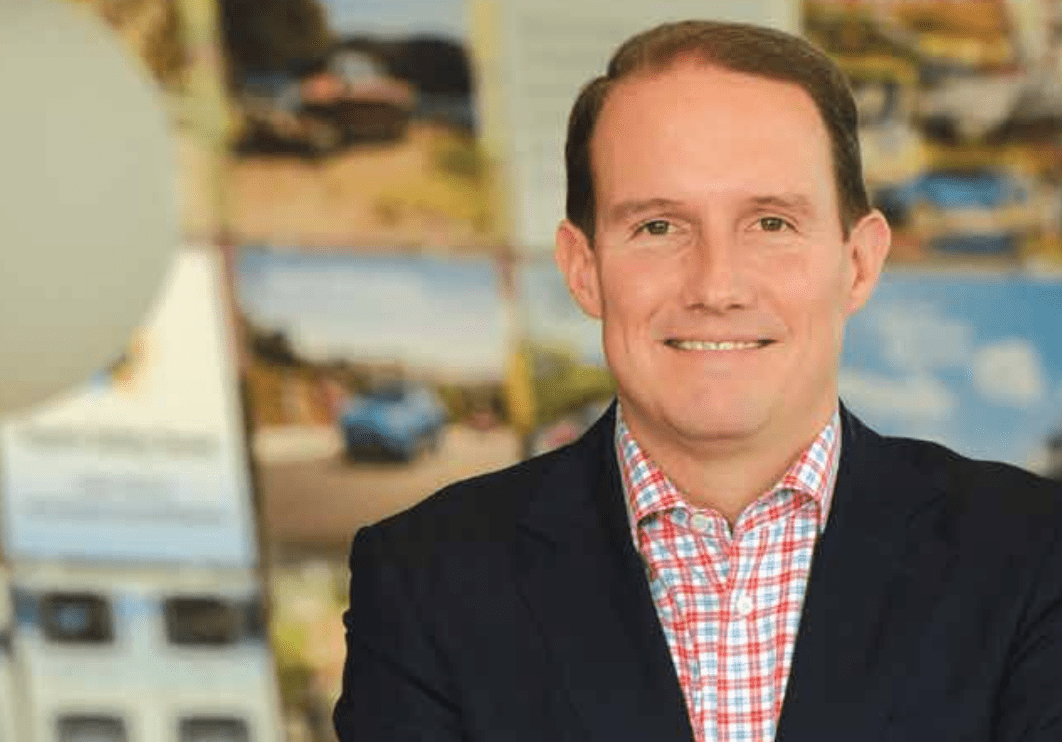Ken Ganley has his eye on a round number — $2 billion. And, if he doesn’t make it this year, well, it’s a sure bet he will in 2019. He has a pretty good track record. In 2006 when he took over Ganley Auto Group from his father, Tom, the dealership rang up about $400 million in sales. He’s ending out 2017 with $1.6 billion.
“I think we have a real shot at $2 billion in 2018 with our new additions and increased improvements,” he says. “Business is great. I’m not one of those guys that thinks the car business is coming to an end.”
Located in Brecksville, Ohio, near Akron, Ganley Auto Group is a collection of 35 dealerships with 1,800 employees. Collectively, the group sells 58,000 units or 4,000 to 5,000 a month. In 2016 Auto Week listed them as selling a total of 51,211 units, 26,101 new vehicles and 15,690 used, making it the 27th largest dealership group. It has 33 different nameplates ranging from Ford to BMW. The dealership ranks first and second in Toyota sales in the state and has the largest Honda store as well. His number one volume brand is Honda but says that Subaru “is very, very hot.” In addition to his north Ohio dealerships, he has one in Florida that he bought with a partner whose son lives in Florida and manages it.
Don’t Let Numbers Get in the Way
He recently bought Central Cadillac, an almost iconic Cadillac dealership in Cleveland, and the details of the acquisition reflect Ganley’s philosophy of not only acquisitions, but running the business. For 75 years Central Cadillac was owned by the Porter family. It was founded by Frank Porter’s material grandfather in 1942 and in 1949 opened another Cadillac dealership spending $1 million on the construction that included such “luxuries” as air conditioning and fluorescent lights.
Ganley approached Porter, 72, two years ago about selling but the owner wanted to get out of the business but keep it in the family. When his two sons definitely refused to take over and an internal employee deal fell through, Porter remembered Ganley and called. “I know just about everyone in the business, especially in northern Ohio. I know everyone’s reputation and everyone’s numbers. I haven’t seen a lot of red flags in the deals I’ve done. I’ve not dealt with questionable people. But I don’t let the numbers get in in the way. I figure that no matter what the situation, I can turn it around.”
Porter wanted to protect his employees and Ganley agreed to keep everyone, including Curtis Johnson, a 40-year-staffer, as general manager. More than one-third of the 60 employees had more than 15 years of service to Central. He’s even keeping the name.
“Every situation stands on its own,” he says. “With Central Cadillac it had a wonderful culture and great performances. I inherited a wonderful group of employees that do a super job. I didn’t need to bring our culture in to change them. Sure, I introduced to them some of the things that we do differently, but as employees move on or retire and we bring in new employees, they’ll go through our training program and get integrated into our part of the world.”
It’s All About Relationships
Ganley believes that for a deal to be successful it is necessary to have a really good relationship with the seller. “If I go back two years when I bought a Buick GMC store in Cleveland, the dealer and I met for lunch at least 30 times and he was in his upper 80s, low 90s. We created a real bond — beyond dollars and cents. You have to have a relationship. I recently purchased and closed on the Baumann Auto Group in Norwalk, Ohio and Buck Baumann is a really wonderful guy. We couldn’t have gotten along better.”
Ganley learned the importance of relationships from his father, Tom, when he worked in his dealerships. Tom bought an American Motors store in 1968 with very little money and a dealer development deal of 95 percent. “He paid it off in 18 months and grew from there,” Ganley says. Tom eventually sold those two dealerships and opened an Oldsmobile, which “really was the catalyst for our large grown in the 70’s and 80’s. From there he bought Lincoln, Dodge an a Budget Rent a Car franchise. Eventually he had about 25 locations.”
The car rental side fueled the used car side of the dealerships but eventually he sold that and added dealerships every couple of years.
Ganley grew up in the business. “I couldn’t get enough of it. If I didn’t have school I would beg my father to take me to work. I could spend the whole day in the showroom. I played every role, washed cars, cleaned floors. It was important to my dad that I learned every facet of the business. By 16 I was selling cars.”
After college he went to work for a Honda dealership and then he dad offered him a partnership deal in a small Toyota/Mercedes dual dealership in Akron. It had a four-car showroom, 18 service bays and was in a tough location. Today the dealership sits on 18 acres and sells around 4,500 cars a year.
As Ganley matured he bought some dealerships on his own as well as with his father. “The best advice he ever gave me is to surround yourself with the best people and then life will be easier. I never forgot that. It’s always in my head. Whenever I have a dealership not performing I ask myself if I have the best people possible. He also told me to take the best out of people and leave the bad habits.”
All in the Family
Langley admits that he and his late father were “very similar on some things and very different on others. When it comes to expense controls, we were a lot alike. When it came to daily operations we had some real differences. One of the things I wanted to do right away was to start a training department in the company and it has really delivered a much higher caliber employee.”
They also had differences about facilities. “I wanted to build all new facilities because ours were aging. I think since ’06 we’ve built 25 or 26 new ones. We went from an aging platform to everything brand new. I think that played a big role on our growth. My dad came from an era where it wasn’t about facilities and experiences. It’s a different world and today things are about delivering a world class experience.”
Adding, “My dad and I had our fair share of blowouts. That’s normal, and in some ways, healthy. Each guy wants to succeed but has different ideas on how to do it. I learned a lot of lessons and there’s some things I’ll do differently with my boys.”
Managing Growth — and Stupidity
About six years ago Ganley decided he wanted his growth to be internal and not hiring from the outside has “made a huge difference.” I think I saw that, for a number of years, the people we hired from the outside just didn’t perform and then it clicked. We weren’t taking our assets and giving them a shot. When you promote from within it creates an opportunity for others to step into a former position and it sets a good culture of growth and loyalty.”
Of course, finding those people is hard. He prefers not to hire people with previous experience at a dealership. “Just the other day at a meeting I asked my team how we can find really solid entry-level people. It’s tough and you have to just keep trying. We may interview 10 to get one. Techs are always a challenge.”
With growth comes challenges and the biggest one is people, he says. “I’m blessed with wonderful employees but with the daily management of that many people HR issues are inevitable. With that many people someone is going to do something stupid every day. Sometimes I invite myself too deeply into the problem.”
Thoughts about OEMs
Ganley says that he generally has great relationships with his manufacturers but that “at times manufacturers have programs and policies that create a negative type of relationship with the dealers. At the end of the day, we’re all in it for the same thing. I need to sell their cars. We’re on the same team. I’d say about 95 percent of the time I have great relationships with the manufacturers but there are things that they do that are negative toward dealers and it’s a bit frustrating.”
He notes step selling is an example of a policy that hurts dealers. “If I worked on the manufacturing side, I’d work my butt off for the dealer because that’s my customer. Stair-step selling has a negative impact on the business. When you look at some of the brands like Toyota, they don’t have that. The relationships Toyota has with its dealers is unbelievable; it’s great. Others should take a lesson and learn that that’s not how to do business.”
The Future
Ganley recognizes that he has a choice position in northern Ohio that is regularly coveted by public companies and private equity companies. “Yes, we are a group that you would have a hard time duplicating from scratch. I can see us continuing to grow and make our footprint even larger. I’m not interested in going anywhere. I’m not ready to retire and stay at home with my wife and kids. As long as things continue to be like they were in the last eight to nine years, we’re going to be OK.”
Besides, he’s got his eye on the next generation. “My sons are 16,13, and 11 and in the summer they wash cars. I think they are showing a pretty good interest in the business. That would be a dream of mine — to have my sons work in my business.“








